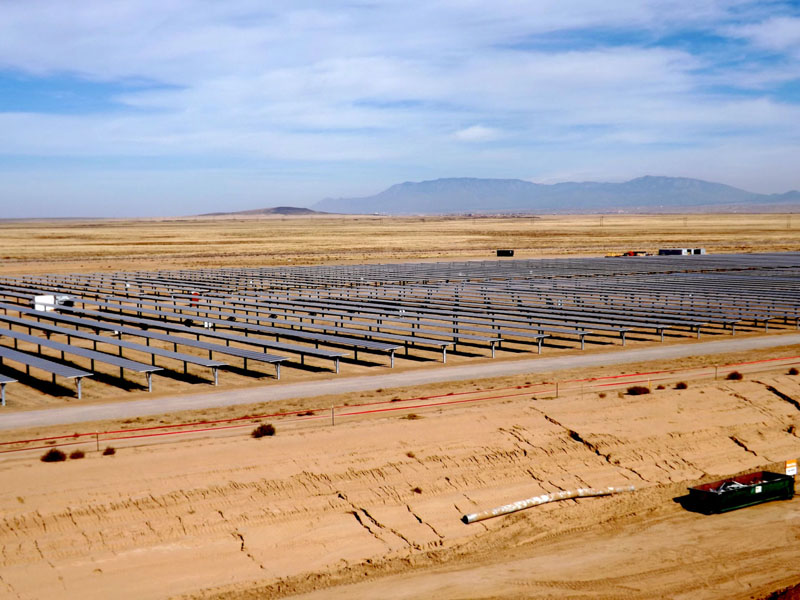Gov. Michelle Lujan Grisham made it clear Wednesday that she isn’t happy about a regulatory decision requiring Facebook to pay $39 million for a transmission line to help power the company’s massive data center in Los Lunas.
The 5-0 decision last month by the New Mexico Public Regulation Commission – an independent, elected body – has triggered strong criticism from Facebook, state officials and others who say the $39 million bill wasn’t part of the original agreement enticing the company to build in New Mexico.
Lujan Grisham told hundreds of business leaders last Wednesday that she cannot interfere with the PRC’s authority but that she’s been in contact with Facebook since the decision to reassure the company.
“I’ve reached out to Facebook,” she told an audience of about 300 people gathered for an Economic Forum breakfast in Albuquerque. “I made it really clear – somewhere is a solution.”
Lujan Grisham, a Democrat who took office Jan. 1, said she also has spoken to Public Service Company of New Mexico, which she believes is well-prepared to make its case that the bill to Facebook isn’t justified.
New Mexico won a competition for the $1 billion Facebook project partly by agreeing to power the data center entirely with renewable energy.
The PRC this month voted 5-0 in favor of an order requiring PNM to bill Facebook — not a broader group of customers — for about half the cost of the transmission line. That’s because Facebook, not other retail customers, will benefit from the line, the PRC said, citing testimony of a PNM executive.
But PNM says it has since provided more information that corrected the original testimony. The company says the line is part of an overall system upgrade that will benefit customers in general, not just Facebook.
The decision triggered outrage from state officials and economic development boosters, who said that sending a surprise bill to Facebook would have a “chilling effect” on New Mexico’s business reputation.
Bruce Krasnow, a spokesman for the state Economic Development Department, said the governor will do whatever she can to contribute to a solution and has made a personal call to Facebook.
But the administration, he said, doesn’t have a formal role in the regulatory process for PNM.
Facebook “has been a good corporate neighbor and has far exceeded the promises it made to the state for employment and investment,” Krasnow said in a written statement. “The Governor and EDD are trying to reassure Facebook and other firms that want to do business in the state that we will keep our commitments.”
Lujan Grisham suggested the PRC decision underscores the need for broader regulatory changes.
State lawmakers this year agreed to seek voter approval to turn the PRC into a three-member board appointed by the governor — after applicants are screened through an independent nominating commission.
Lujan Grisham didn’t explicitly refer to the proposal in her speech last week, but she said regulatory changes are needed.
“We’re looking for reforms for many of our regulatory bodies,” she said, “so that they’re independent, they’re balanced, but they’re clear that the balance is you must protect consumers but you do that by also understanding where our future investments are.”
PNM filed a motion Monday for a rehearing with the PRC, which ordered PNM to not charge ratepayers for any of the project costs, only Facebook and wholesale customers.
In its request for a rehearing, PNM said it recognizes that its “initial description” during the hearing was “confusing, leading the commission to the incorrect belief the line would only serve Facebook.”















